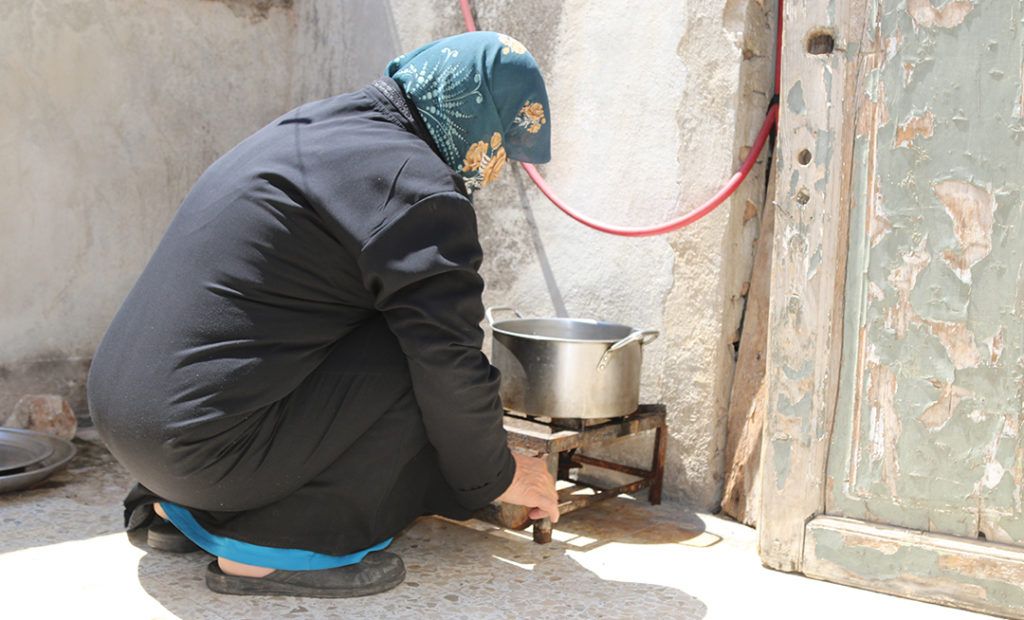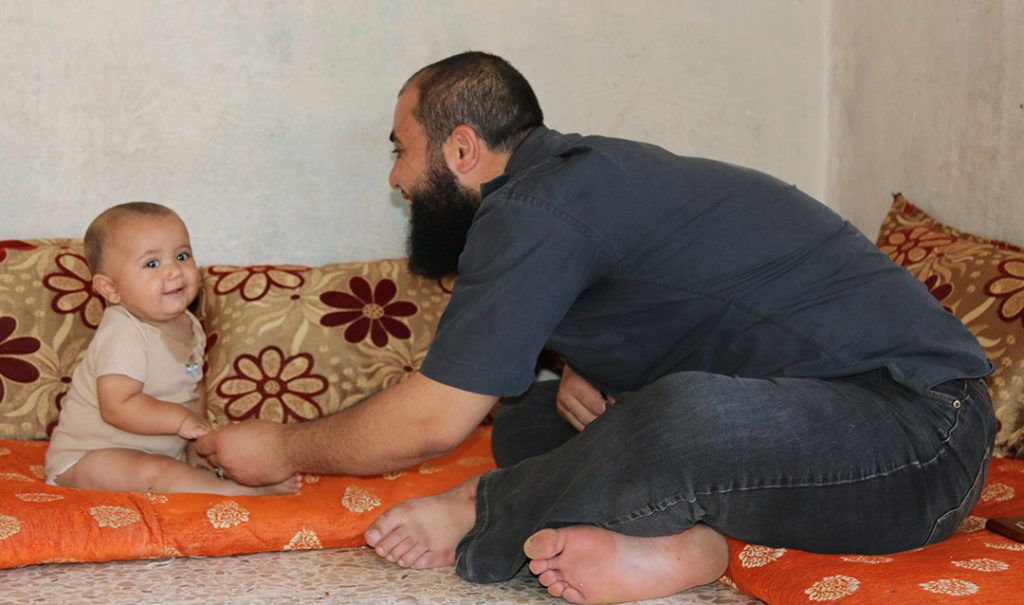 Stories
Stories
March 2, 2021 • 3 min read
The Al-Rouge Plain, known locally as Syria's breadbasket, has become a temporary home for thousands of internally displaced families over the last decade.
Since the outbreak of the war in 2011, thousands of small farmers have been forced to abandon their homes in Idleb and leave their livelihoods behind. The fertile lands of Al-Rouge provided hope for displaced farmers. It gave them a chance to grow their own crops again. An opportunity to provide for their families without relying on international aid.
Sharin’s Story
Unfortunately, for thousands of parents like Sharin*, their ancestral home in Al-Rouge has not been spared from the devastation of the conflict. The 55-year-old mother of five has been supporting her oldest son’s family since he was disabled in an air raid. Sharin is also caring for her husband, who suffers from an illness which has made him partially paralysed.
“Before the war, life used to be easier for us. Our village had fertile and arable soil. We used to live off our own crops. But under the current extreme circumstances, the agricultural yields and crops have disappeared,” Sharin says.
The family now live in Sijer, one of the many villages reliant on the Al-Rouge Plain for food. With the agriculture industry destroyed in the area, Sharin’s family are now depending on food assistance from GOAL to survive. “Our employment is only seasonal and temporary, and we have no stable or reliable sources of income, such as land or property,” Sharin adds.

Sharin begins to prepare dinner for her family, cooking on a wood stove
Syria’s Breadbasket
The Al-Rouge Plain is known locally as Syria’s breadbasket. Before the war its rich soil, irrigated by the River Orontes, delivered grain, vegetables, cotton, and sugar beets. Nowadays, disruption in the water network means farmers are reliant on infrequent rain to enrichen the lands and feed their crops. Rain-fed crops such as wheat are all that remain.
A steep rise in production costs is also a huge concern for local farmers. A rapid decline in the value of the Syrian Pound has led to alarming inflation and crippled the local economy.
Coping with her husband’s illness and her eldest son’s disability has been a huge challenge for Sharin. But with work now in short supply Sharin cannot even afford to buy bread or tea for her family. Thankfully, GOAL teams are on the ground in Syria delivering vital aid to thousands of families like Sharin’s.
“We depend heavily on the food kit. It bridges a huge gap in our lives,” Sharin explains, “The kits contain essential food items to keep us going. It also allows us to meet other basic needs, such as firewood for cooking and heating. This support means a lot to us in this difficult time.”
Ahmad, Sharin’s oldest son, agrees with his mother. “Thanks to this support, I can afford to buy nappies for my children. It also helps me to cover the cost of rent and medication for my disabled father. This help is hugely important for me and poor families like us,” he adds.

Ahmad plays with his son Farid
You can help families like Ahmad’s and support GOAL’s work in Syria with a donation today.
*Some of the names in this story were changed in order to protect beneficiaries’ identities.
